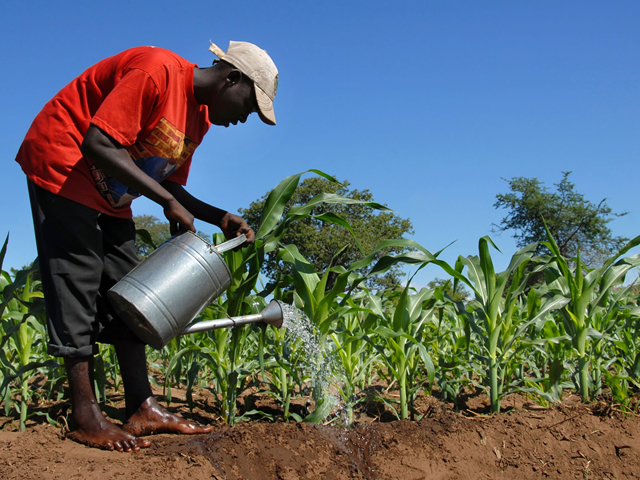When the European Commission and African Union (AU) set up a 12-person joint rural Africa taskforce in May 2018, their priorities were to promote African food security, transferring skills, climate change adaption and investment in the continent’s agri-business. When the coronavirus pandemic first hit Europe and Africa earlier in March, there were fears that African agricultural production would be badly hit by supply chain disruption. In April, the UN’s Food and Agriculture Organisation (FAO) and the AU described the food supply system as ‘an essential service that must continue to operate during periods of lockdown, emergency, curfew and other containment measures’, in a bid to ensure that farming communities and food supply are protected. However, anecdotal evidence from a number of African countries suggests that despite drops in agricultural production of up to 25%, they have used the pandemic, and its disruption to their supply of food imports, to prioritise domestic agricultural production and food security.
The World Bank also warned that disruption to production and supply chains could ‘spark a food security crisis’ in Africa, forecasting a fall in farm production of up to 7% if there are restrictions to trade, and a 25% decline in food imports. The EU, meanwhile, has provided financial support and technical assistance. The European Commission has recently announced a €180 million support package for small farmers and fishermen in Tunisia and a similar €38 million funding stream was launched for Angola’s farming community. Elsewhere, initiatives such as the Europe-Africa Research & Innovation Partnership on Food and Nutrition Security and Sustainable Agriculture (FNSSA), focus on Africa’s long-term agriculture sector, while in June, the EU and AU launched a joint agri-food platform which aims to link African and European private sectors to promote sustainable and meaningful investment in the agribusiness sector. “As neighbours and, increasingly, as trading partners, Europe and Africa have many shared interests and much to learn from one another as our food systems face the challenges of the future,” Dr Yemi Akinbamijo, Executive Director of the Forum for Agricultural Research in Africa, says.
Meanwhile, in the wake of the coronavirus pandemic, there is also a great need for EU-African collaboration in the effort to strengthen and transform food systems. “Together working with Europe, our closest neighbour in research and innovation, we will be able to jointly address all the bottlenecks and issues of food insecurity and improve the nutrition in our continent,” says Adipala Ekwamu, Executive Secretary of the Regional Universities Forum for Capacity Building in Agriculture (RUFORUM). In this respect, the EU-AU Research & Innovation (R&I) partnership on Food and Nutrition Security and Sustainable Agriculture (FNSSA), provides a 10-year roadmap and the envisaged platform for long-term collaboration between both continents. However, these EU-funded platforms have been criticized because they shut civil society organizations out of discussions between the EU-AU, with the former warning that the process must not be just a top-down exercise between political elites. In particular, the critics stress that voices of small farmers, consumers and civil society organisations (CSO) must be at the table.




